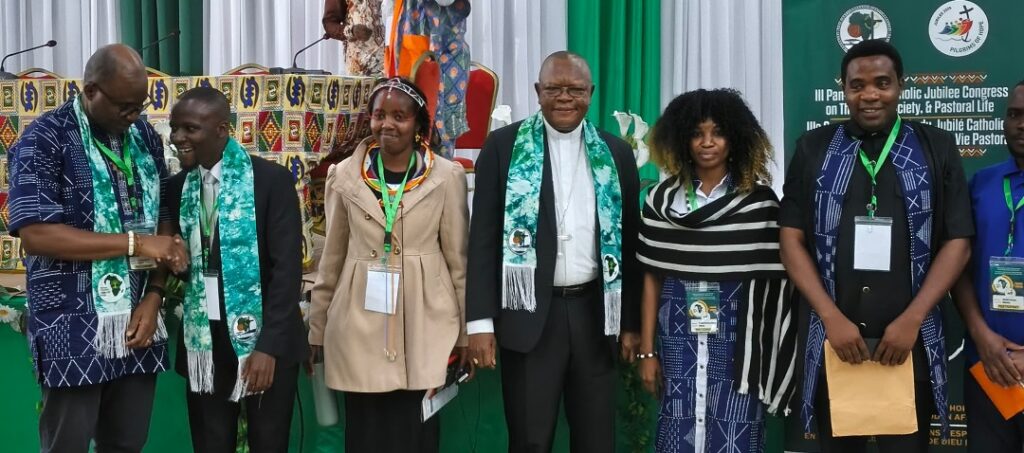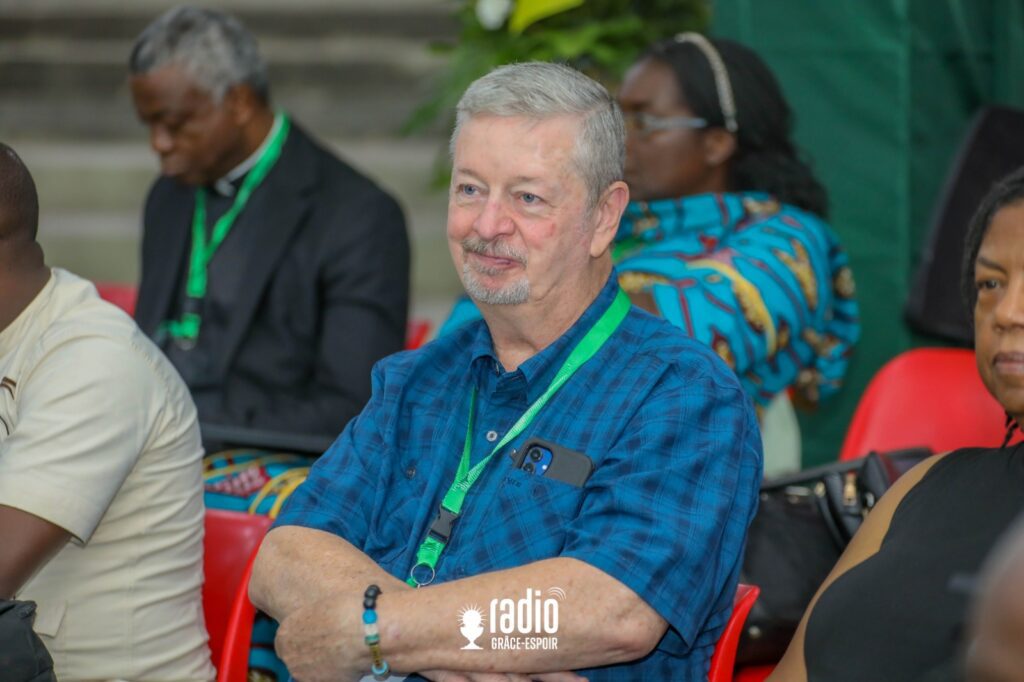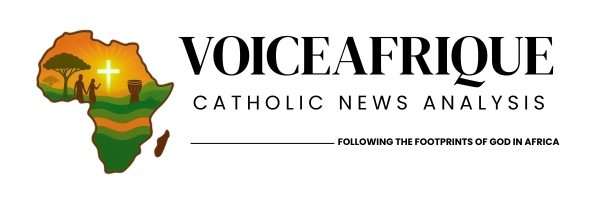
.
Abidjan, Côte d’Ivoire – August 7, 2025
In the hushed hall of the Catholic University of Abidjan, on the second day of the III PACTPAN Jubilee Congress, a moment of renewal began. African clergy, theologians, thinkers, and lay faithful were not merely debating leadership in the Church—they were reimagining it through the lens of lived experience, ancestral wisdom, and theological depth.
The theme of the day, “Transformational Leadership and Spiritual Maturity in the Church,” was not treated as an abstract theory but as a sacred trust—rooted in service, sacrifice, accountability, and community. The emerging vision challenged the old hierarchies of dominance and replaced them with “a leadership of listening,” where, as one participant put it, “the shepherd walks with the flock, not ahead of it.”
What is emerging, as affirmed by each speaker, is a distinctly African yet universally relevant vision: a leadership rooted in the imitation of Christ, the servant leader. It is a call to exercise not “power over” but “power with” the people—leadership that is incarnated in humility, justice, and the healing of wounded communities.
Servant Leadership Rooted in Divine Intimacy
Fr. Prof. Clement Majawa of the Catholic University of Eastern Africa set the tone, warning of a disconnect between seminary formation and real-world leadership. “Lack of mature spirituality and poor human formation creates a gap,” he said. True transformation, he argued, begins in “the human soul, the conscience, the mind, common sense, and the common good.”
Fr. Alex Ojacor deepened the reflection: “Spiritual maturity is maturity into God… a relationship that moves with Him. The result is transformation—we can no longer remain the same.” He urged the Church to confront its challenges with leadership models that reflect both African realities and Gospel values.
Financial Autonomy and Strategic Vision
Dr Theogene, Missio Director Belgium, drawing from years of ministry in Belgium, emphasized that financial autonomy is essential for authentic leadership. “Aid should be temporary, not permanent,” he said. “Self-reliance is a mission for all.” With Africa now home to 600 million Christians and a booming youth population, he challenged the Church to harness its human and natural resources to shape its own destiny.
Fr. Peter Chikere reframed Africa’s crises as opportunities, citing Michael Maren’s The Road to Hell to critique foreign aid. “We must restructure our understanding of aid,” he said, pointing to mismanagement during the COVID-19 pandemic as evidence of poor leadership. He called for strategic alliances rooted in dignity and autonomy.
Raising a New Generation of Leaders

Sr. Rita Tamba presented the work of COSMAM, a movement empowering young Africans through a participatory and synodal Church. “The Church must be a source of hope,” she said, advocating for leaders who act as “coaches, animators, and bridge-builders.”
Edel Akigir outlined five marks of spiritual leadership: intimacy with God, moral integrity, servant leadership, prophetic boldness, and cultural discernment. She emphasized the need for courage in confronting injustice—whether from secular or religious authorities.
Prof Mary Getui reminded delegates that leadership begins in everyday life. “Leadership is service to the people, not personal gain,” she said, calling for accountability rooted in African traditions like Ubuntu, Harambee, and Ujamaa.
Decolonizing Theology and Reclaiming Identity
Fr. George Nembunzu of Congo addressed the need to decolonize African theology. “We must develop a theology that touches the real struggles of our people—pastoral, discerning, and transformative,” he urged, critiquing missionary-era theology for its narrow focus on the soul while ignoring social and bodily realities.
The day’s discussions revealed a Church not content with borrowed models or external solutions. As one participant put it, “This is the pulse of an African Church reclaiming its voice in shaping both Church and society.”
Toward a Church of Dignity and Hope
Echoing Cardinal Fridolin Ambongo’s recent remarks, the Congress affirmed that financial and structural autonomy must begin with mental autonomy. Without it, Africa risks remaining “eternal mendicants.”
Yet the voices in Abidjan spoke of a different future—one led by a new generation of African leaders grounded in divine intimacy, servant leadership, and strategic vision. A Church that walks with its people, heals its wounds, and leads with dignity, justice, and hope.

